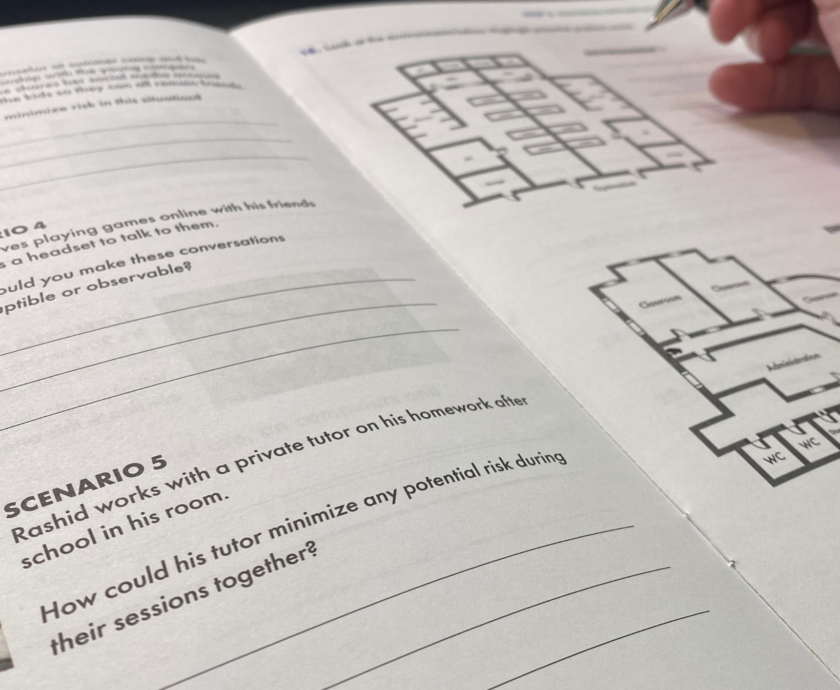According to our friends at the National Center for Missing and Exploited Children, “Cyberbullying is the use of technology to tease, humiliate, threaten and/or harass someone.”
Cyberbullying can take place through text messaging or social media. Cyberbullies might send mean comments, post embarrassing photos, or share private information about someone to humiliate or mock them online.”
20-30% of kids report having been cyberbullied in their lifetime.1
As a parent or caregiver, there are things you can do. You do not have to accept that it will just be a part of your child’s life in the technology-rich world in which we live in.
Model healthy behaviors
These healthy behaviors should be a mix of appropriate time spent on devices, time you are purposefully unplugged and engaged with others, as well as healthy behaviors on social media (which can also mean saying “no” to some or all of social media).
Talk about it
Use conversations starters such as these to have age-appropriate discussions about cyberbullying. Be prepared for any and all answers that you might get.
- Has anyone ever tried talking to you online about inappropriate or sexual things? What did you do?
- Do you trust all of your online friends? Are there any people you should unfriend or block?
- Do you know how to report, flag, or block people on the websites and apps you use? Can you show me?
- Who would you talk to if you were upset by a request you received online?
- What would you do if people left a mean or inappropriate comment on someone else?
- Have you ever left a mean comment on someone you did not like? Why? How did that affect you and the person?
- Have you talked to your friends about appropriate behaviors online? Like not leaving mean comments, not resharing inappropriate content, speaking up if a person is harassing someone else?
Model Healthy Relationships
You don’t have to be best friends with everyone. You might have different interests or personalities, but that doesn’t mean you have to be mean to them. Here are some ways you can avoid becoming a cyberbully yourself:
- Keep critical comments to yourself – It’s not OK to intentionally hurt someone.
- Don’t start or forward rumors – Even if you think you’re being funny, rumors can get out of control and can be very hurtful.
- Don’t post anything meant to embarrass someone else – It’s not just your friends who can see something mean you’ve posted online; mean comments like that can travel fast and cause a lot of harm.
Transferable skills
Everything that your child is learning about character education and bullying in school carries over into the digital world and it can all begin with the Golden Rule. However, they can also leave a digital footprint behind, so they need to learn to be good digital citizens. Chances are your child’s school is teaching them these very important lessons. If you aren’t sure ask. If they aren’t, then recommend they use NetSmartz and KidSmartz.
As adults, it is our job to spot cyberbullying, deal with it and stand up to it. Most importantly, any online harassment that is sexual in nature should also be reported to CyberTipline.org. Even if your child isn’t being cyberbullied, remind them that it is everyone’s job to prevent bullying and encourage them to take a stand.
[1] The Annual Bullying Survey 2017(Rep.). (2017, July). Retrieved February, 2019, from Ditch the Label website: https://dtl-beta-website-assets.s3.amazonaws.com/ABS_2017_1_ae04a7734b.pdf






